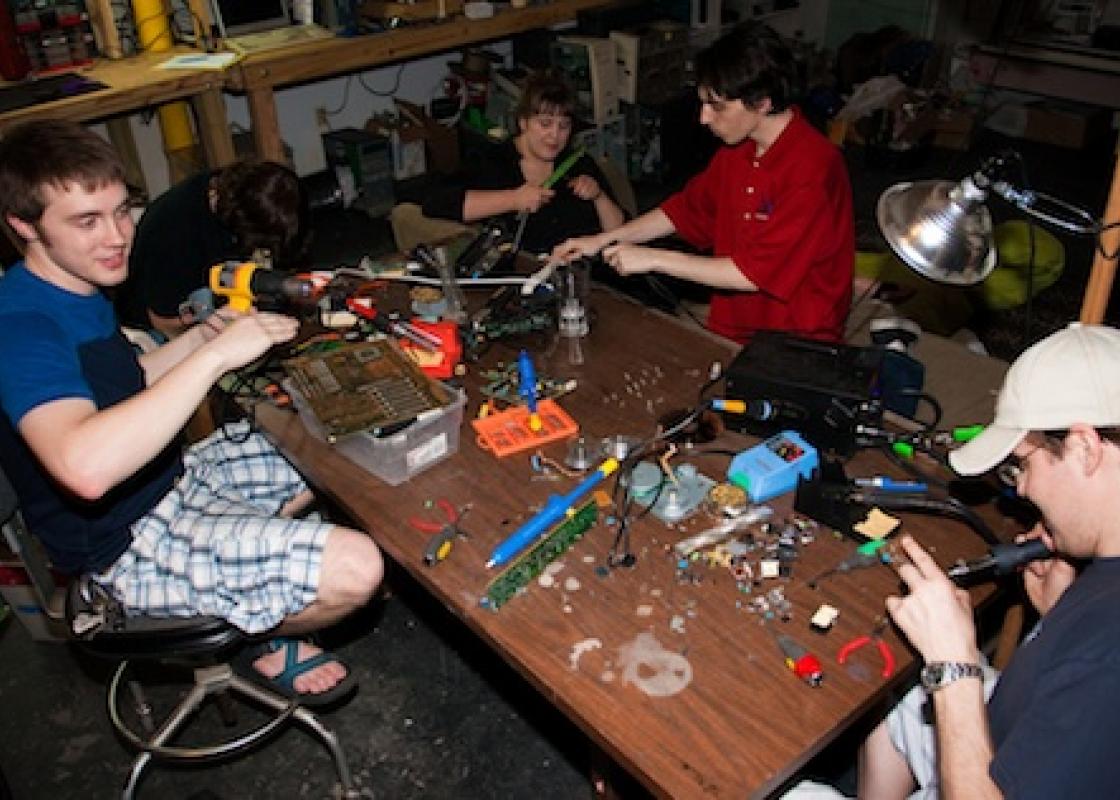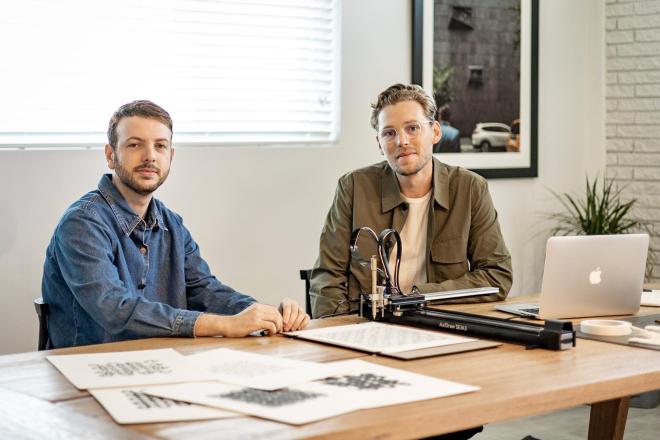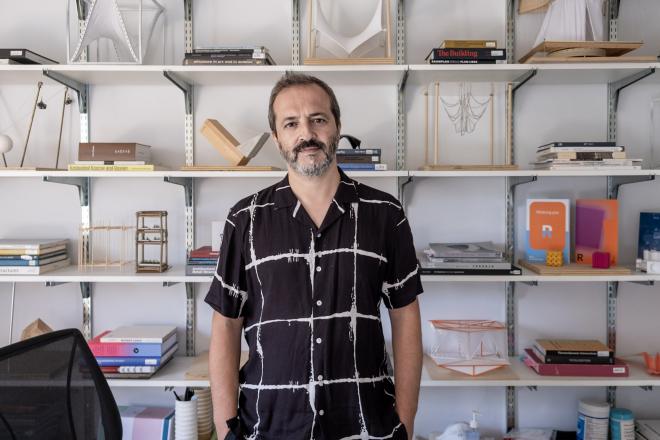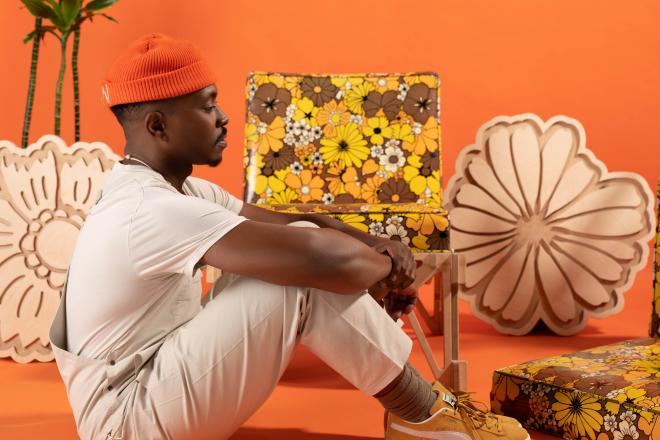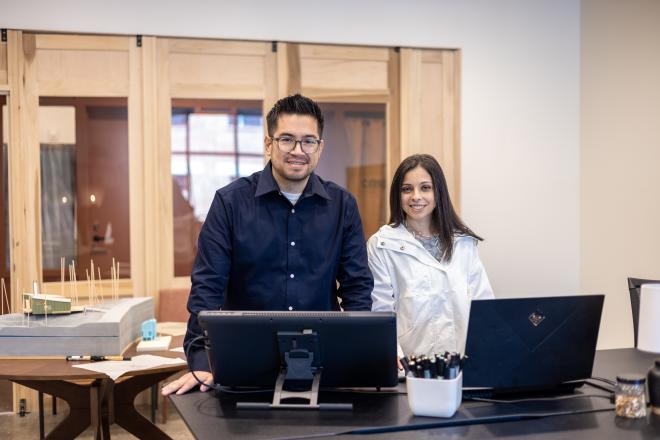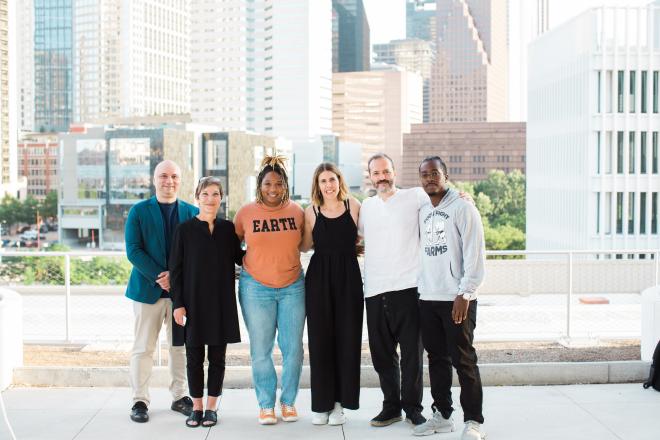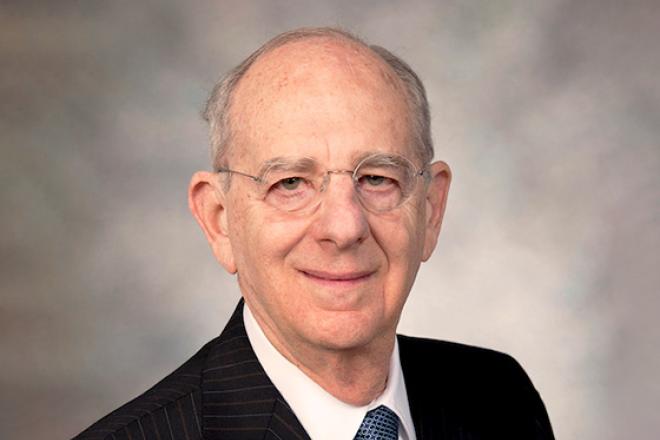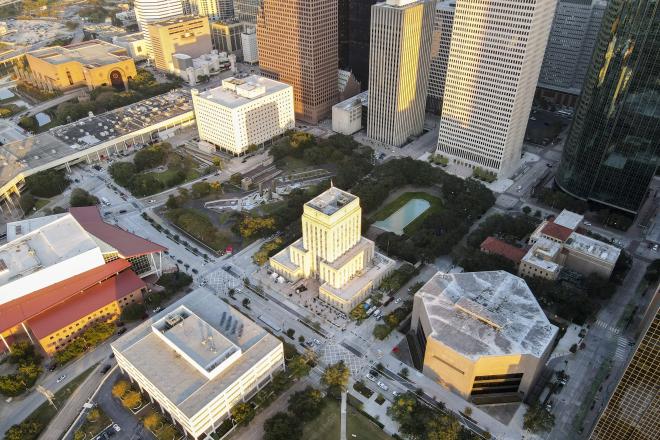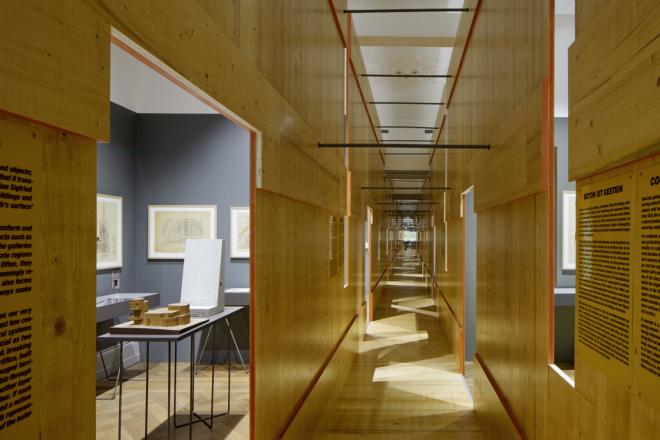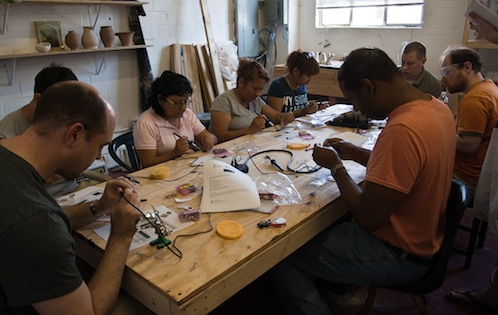
Soldering class at Tx/Rx labs. Photographs by Wanjun Zhang
The Fabrication Issue (Cite 84) was recently named by Print magazine as a finalist in its regional design annual. In celebration, the pdf archive of the issue is now available at no charge. Allyn West follows up on an great story we had hoped to include in the Fabrication Issue, but that was not fully hatched at the time.
My younger brother and I are in a secret competition. He doesn’t even know about it, it’s that secret. We’ve both become tinkerers, over the years, hacking around with tools and salvaged materials and playing a perpetual game of finders-keepers with other people’s garbage; when he lived in Chicago, we’d walk the alleys in Rogers Park to look for castaway things he thought he could use.
He’s in Austin, now, and the pickings there are just as good. He’s upcycled suitcases into storage for vinyl LPs, downed branches into coatracks, teacups and saucers into finch feeders. This spring, he harvested the sides of a crib to improvise a fence for his garden and keep squirrels from his strawberries.
He’s winning, in other words. It’s not even close. This spring, painfully aware of how far behind my brother—my baby brother!—I was slipping, I noticed a poster at Bohemeo’s. This thing called TX/RX Labs was holding classes over on Commerce Street. Just the classes I needed, it seemed. Classes in woodworking. Welding. Soldering. Visiting their website, I started giggling. I’d take a full load, I thought, beginning with CAD/Drafting Basics, maybe graduating to Intermediate Analog Circuits. In time, I’d be ready for Advanced MicroControllers—whatever that was.
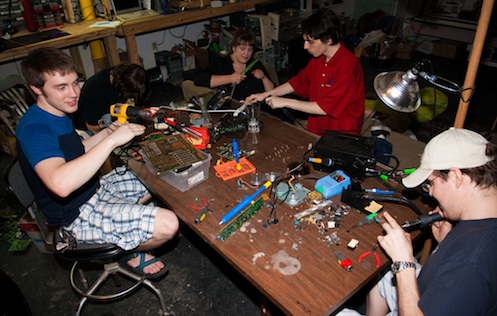
Hackers desolder for useful parts
TX/RX Labs, as member Roland von Kurnatowski describes it, is a tricked-out version of your grandfather’s basement workshop. In a 4,000-square-foot warehouse in EaDo, on top of awls and pliers, Tx/Rx Labs has room-sized CNC routers and lathes. Circuitboards are scattered about like playing cards. There’s a 3D printer. There’s an old vending machine that dispenses tools and supplies, now, instead of candy or potato chips. There’s a cache of steel pipes with punched holes, ordered by aspiring barbecuers. You’ll see laptops open to Wikipedia pages for “polyactic acid” and LED art programmed to blink according to random algorithms. This is a space where experts and wannabes like me can come together to experiment, help each other troubleshoot and brainstorm, design and build, teach and learn. You can come here to dabble in “the unknown future pastimes of America,” as von Kurnatowski calls them. “It’s kind of a mad house,” he admits.
In 2008, Patrick Wheeler, TX/RX Labs’ President, moved to Houston to take a Ph.D. at Rice. He was having some problems in his personal life. One was that he had beverage containers that were too large for the cupholders in his car. Living in Houston, of course, means there are approximately 7,342 stores within a mile of your house that sell any number of products to remedy this. Instead, Wheeler went to his laptop, connected it to a 3D printer, and designed an adapter out of extruded plastic.
He says he could have bought something, but that that wouldn’t have done him any good had he needed to tweak it, improve it, duplicate it. “Products are really complex,” he says. “They use advanced materials.” He needed what he calls “an increased rate of iteration in my own life and my own tools.”
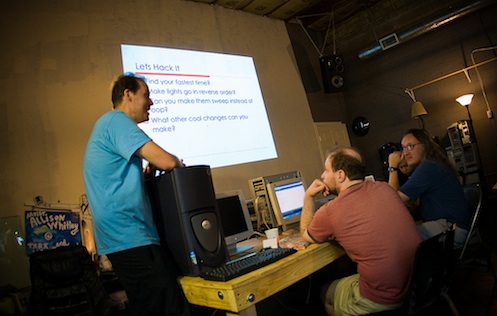
A class on Arduino, a device that allows anyone to create interactive electronics.
Really, he says, he needed a community. When he moved to Houston, he was surprised that a city of this size lacked what he came to call a hackerspace. Where did Houstonians go to access tools, learn new skills, and build things? “I had a desire for this without ever knowing what it was called,” he says. “It’s important to surround yourself with people who are doing the things you want to do. And I was searching online and found it.” The name, he explains, derives from the practices of early electronics technicians, who would “hack” together repairs with a series of educated guesses and crude swings. Wheeler thought that if he needed this, other people must, too. He decided that, if he hadn’t heard within a year anything about a Houston hackerspace, he was going to do something about it.
As promised, along with two other co-founders, both in IT, Wheeler organized Tx/Rx Labs’ first meetings at a Midtown coffee shop. “Houston has a large technical community,” he says he discovered. “But it’s often not concentrated. One of [our] efforts was to concentrate it. When you have that density you end up having side benefits. You end up reaching a critical density. It makes it easier for people to find jobs and work on interesting projects together.”
Once a month, he says, about 30 people would gather to talk shop, share designs, work on small projects. Some bloggers wrote about these meetings, and soon there were 50 or 70 people showing up.
This was about when von Kurnatowski started to get involved. A graduate of Rice, who works as an IT consultant, he was always playing with technology, developing solutions. One day, he showed his father—a real-estate developer who scouts new properties from the cockpit of his private plane—his new iPad. His father couldn’t believe the functionality, the miniaturization. “I could use one of those,” he said. He showed his son a copy of the cumbersome, practically illegible guide that pilots use to navigate. Within minutes, von Kurnatowski had downloaded an app that replaced it. Within a week, he had designed and programmed another that compiled weather data and sent it to his father’s new device in the cockpit, surpassing the limitations of our wireless networks.
With von Kurnatowski, Wheeler moved TX/RX Labs into a space at the Caroline Collective. Because it was only 300 square feet, Wheeler says, “it became cramped very quickly.” Need for more space pushed members to scout, and eventually rent, a warehouse on Commerce Street.
Having 4,000 square feet, Wheeler and von Kurnatowski could now accept the donated tools and equipment they had had to refuse. They started putting on technology demonstrations. They opened up the space for artists, musicians, entrepreneurs. The communal aspect of TX/RX Labs, von Kurnatowski says, makes failure seem less scary. It makes designing and fabricating a prototype less daunting, less potentially ruinous. “This is a central point of knowledge,” he says. “The more people we have, the more experts we have. It’s a matter of getting them close enough to interact.”
In Spring 2010, looking to expand and reach even more people, as well as emphasize both their commitment to education and their status as a federal nonprofit, Wheeler and von Kurnatowski enlisted members and other volunteers to teach a round of inexpensive classes. These ranged from knitting to algebra.
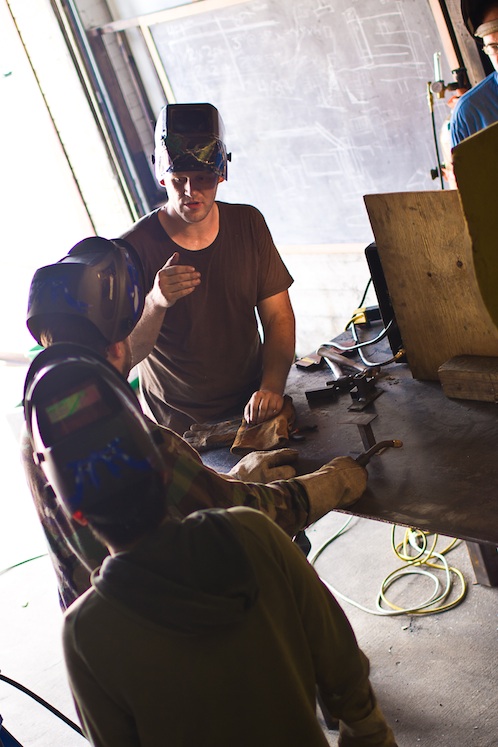
Welding class
I was going to take Basic Woodworking. For three hours on a Saturday morning and $35, we would learn how to use tools properly and safely and build a bench we could take home. Stupidly, I’d blocked out everything from the shop class I was forced to endure as a frightened 12-year-old in my school’s vocational rotation. And I regretted it. Now, I wanted to know how to use those tools. I had things to build and a younger brother to impress. As von Kurnatowski says, “[These classes are] ideal for people who want to make things but don’t know how, or don’t have access to resources. There are places all over town if you want to do yoga or take a dance class. This is that. For dorks.” At last count, TX/RX Labs has educated almost 200 Houstonians.
As they prepare a fall lineup of classes, they are also searching for a new building. They’re facing the same problems on Commerce Street as at the Caroline Collective. “We’ve had to turn down donations and equipment,” Wheeler says. “We don’t have enough room.” Though they need something larger than 20,000 square feet, they want to remain centralized, near a highway, so they remain easy to access. Since moving, Tx/Rx Labs has forged a strong relationship with EaDo and the East End Management District, where the reigning ethos of these neighborhoods matches TX/RX Labs’ spirited hacking.
Wheeler says, “I see us hopefully growing, adapting new organizational tools, teaching longer-term classes, paying teachers, and maybe even beginning to certify people on some of these skills. In five years, I would like to be able to issue grants. We know people in town, we know what they’re talented at. It’d be great to have a pool of money and to be able to say, ‘That’s a great project for the community. Go and build it.’”
For more information, go to txrxlabs.org. Tx/Rx Labs holds free open houses every Friday night at 7 p.m., where visitors can tour the space and meet the members. They’re located at 2010 Commerce Street.


